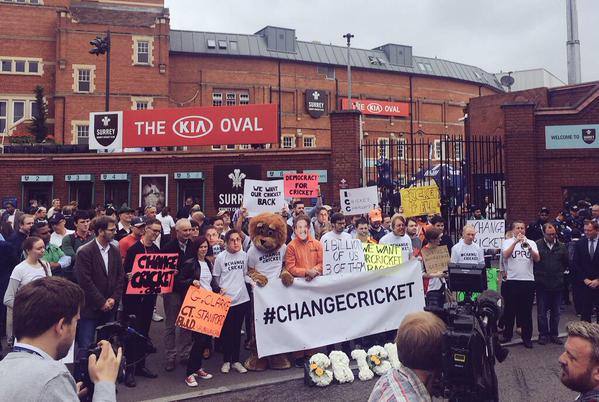Graeme Swann is a joy – a junior national treasure. His ebullience and irrepressibility have been a breath of fresh air for the England side, not to mention his match-winning spin bowling.
Such is our affection for him, we’re loath to criticise any of his endeavours, from the sprinkler dance to his tour diaries or attempts to be a rock singer. But that said, we can only report that his new autobiography distinctly fails to satisfy.
There is a simple reason for the book’s failures – he’s still playing for England. As we mentioned when discussing cricketers’ memoirs the other week, Andy Flower takes a dim view of his players putting pen to paper while still in the side. His concern is the possible impact of loose talk on team spirit and discipline.
But there’s also a critical literary drawback – so reluctant is the player to upset the apple cart, that the end product is irredeemably bland.
Such is the case with Swann’s tome. Here and there, his ghost writer Richard Gibson has sucked out the occasional pithy nugget about his subject’s views on Team England and the international game. Peter Moores was too fond of daft training regimes. Kevin Pietersen was not a natural captain (although regrettably, he sidesteps the entire sacking fiasco). The ECB schedule too many 50 over games. And the ICC flood the calendar with too much cricket at the wrong times. But these are hardly controversial or surprising claims. My mum could have told you most of that.
For such a maverick and intelligent cricketer, it’s also disappointing that Swann’s book reads too often like any old dullard’s post-match interview. There are too many caveats and cliches – along the lines to “to be fair”, “to be honest” – to get any sense of Swann’s real perceptiveness or humour. His individuality and colour has got lost in Gibson’s rather workmanlike traipse through the events of Swann’s career. Unless, of course, he’s not actually as interesting as we previously thought.
Swann’s basic story is readable enough. A promising and fast-tracked youth cricketer, he was disastrously picked for England’s 1999/2000 tour of South Africa, only to antagonise Duncan Fletcher, fail to play a match, and then through his cockiness and naïveté leave himself on the international sidelines for nearly eight years.
When his relationship with Northamptonshire soured in the mid-2000s, Swann considered quitting the game altogether. But a move to Notts revived his fortunes, and after breaking back into the England ODI team, went on to become the number-one ranked bowler in the world.
The juiciest and most illuminating sections concern his early England dressing room experiences in 1999. Swann portrays a selfish, paranoid and cliquey environment in which new arrivals were hung out to dry. Nasser Hussain emerges as even spikier and more brusque than we imagined. And the confirmation that Caddick and Gough hated each other’s guts is probably the book’s most piquant moment.
All of this only left us wondering what could have been. If Swann can write with such insight into events of twelve years ago – now all those players are safely removed from the scene – what could he tell us about the current England set-up? Even when a side is winning, there are always shenanigans behind the scenes.
When he’s retired, Swann can write the real story, and with Andy Flower no longer on his back, provide something fruitier about the drunken antics and stupid pranks which the squad surely indulge in when no one’s looking.
Instead, the final third of the book merely retreads the already well- documented events of the last three years – including the two Ashes wins, the world cup, and the whitewash over India. But these series are still very fresh in our minds, and Swann offers no new insight.
If you’re reading this, Swanny, don’t worry. We still love you. And we realise that in a precarious career like cricket you can’t turn down a publisher’s generous cheque. We just look forward to your proper autobiography in ten years’ time, when you can say whatever you like. Now that book really will be worth reading.
Maxie Allen








